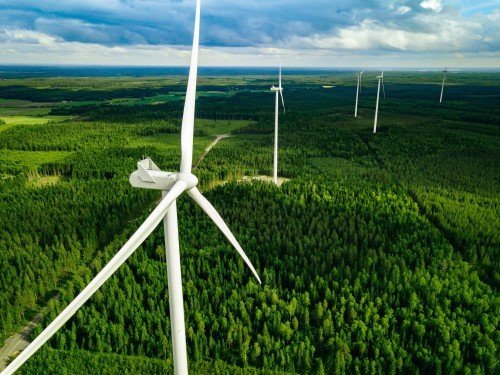
Green energy, also known as renewable energy, is energy that is generated from natural resources such as the sun, wind, and water. It is a sustainable and environmentally friendly alternative to traditional fossil fuels, which are non-renewable and emit harmful pollutants into the atmosphere. In this blog post, we will explore the benefits of green energy for the environment and for our society as a whole.
One of the most significant benefits of green energy is that it does not emit harmful pollutants into the atmosphere. Traditional fossil fuels, such as coal and oil, release carbon dioxide and other greenhouse gases into the atmosphere, which contribute to global warming and climate change. Green energy sources, on the other hand, do not produce these emissions and are therefore considered to be much cleaner and safer for the environment.
Another advantage of green energy is that it is renewable, meaning that it can be replenished naturally and indefinitely. Fossil fuels, on the other hand, are non-renewable, and once they are depleted, they are gone forever. This makes green energy a more sustainable and long-term solution for meeting our energy needs.
In addition to the environmental benefits, green energy also has economic benefits. The cost of renewable energy technologies has been decreasing in recent years, making them more accessible and affordable for individuals and businesses. This can lead to cost savings for consumers and increased investment in the green energy sector, creating jobs and stimulating economic growth.
Furthermore, the use of green energy can also improve energy security. Instead of relying on a limited and finite resource, such as fossil fuels, green energy sources can be harnessed from a variety of sources, making them less vulnerable to price fluctuations and supply disruptions. This can help reduce dependence on foreign oil and improve overall energy security.
In order to fully realize the benefits of green energy, it is important that we increase our use of renewable energy sources and reduce our dependence on fossil fuels. This can be done through a combination of policy changes, research and development, and investment in new technologies.
One way to increase the use of green energy is through government policies and incentives. Governments can provide tax breaks and subsidies for individuals and businesses that invest in renewable energy technologies. They can also set targets and regulations to increase the use of green energy in the electricity grid.
Research and development is also crucial for the continued growth and success of the green energy sector. With new technologies and advancements in renewable energy, we can continue to improve the efficiency and cost-effectiveness of these sources. This can help to make them more competitive with traditional fossil fuels and make it more likely that they will be adopted on a large scale.
Finally, investment in green energy is essential for the continued growth and success of the sector. Private companies, governments, and individuals can all play a role in investing in renewable energy technologies and projects. This can help to create jobs, stimulate economic growth, and improve energy security.
In conclusion, green energy is a sustainable and environmentally friendly alternative to traditional fossil fuels. It has a number of benefits for the environment, economy, and energy security. By increasing our use of renewable energy sources and reducing our dependence on fossil fuels, we can help to create a cleaner, healthier, and more sustainable future for all.








